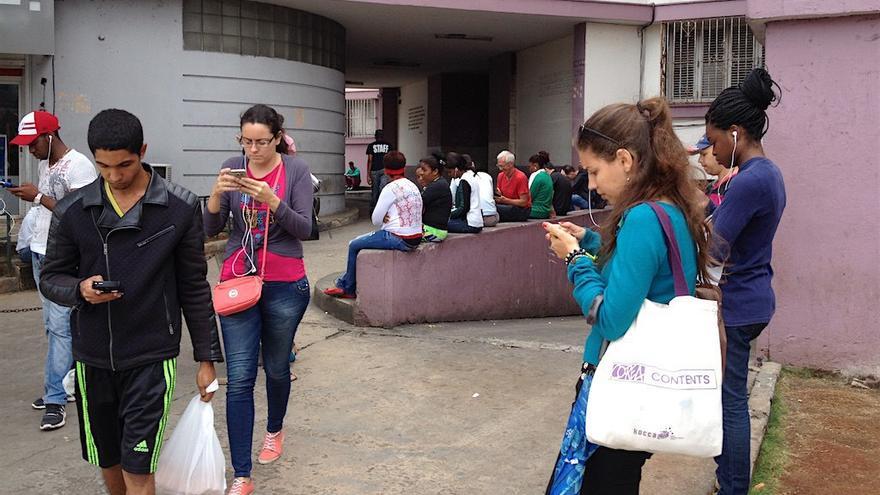
![]() 14ymedio, Havana, 18 August 2021 –The Cuban authorities have denounced before the International Telecommunications Union (ITU) the initiative of the US Government to encourage the expansion of the Internet on the island, as revealed this Tuesday in the television program Mesa Redonda, the Vice Minister of Communications Wilfredo González.
14ymedio, Havana, 18 August 2021 –The Cuban authorities have denounced before the International Telecommunications Union (ITU) the initiative of the US Government to encourage the expansion of the Internet on the island, as revealed this Tuesday in the television program Mesa Redonda, the Vice Minister of Communications Wilfredo González.
“What the United States wants is to provide a parallel internet to our country (…), and we are not really going to allow such interference, because it would be violating not only our Constitution, but also the very preamble of the Constitution of the International Union of Telecommunications (UIT),” said the official, who was commenting on the national television space on the new cybersecurity law with which the Cuban government will pursue the dissemination of any demonstration that it considers “subversive.”
“In recent weeks we have been hearing declared intentions of US government officials to try to provide our country with internet access, which would undoubtedly constitute a frank violation of sovereignty and national security,” he said.
According to González and the Minister of Communications Mayra Arevich Marín, this behavior is contrary not only to Cuban law, but also to international law, since the fundamentals of the constitution of the ITU, dependent on the United Nations and on which both Cuba and the United States are members, prohibit the use of technologies to intervene in the internal affairs of other countries, and require states to take the necessary measures to prevent interference.
The deputy minister insisted that Washington intends to use technologies for the purpose of social destabilization. “In other words, the United States is using the internet as a weapon of aggression against Cuba as a country. (…) We are in the position of avoiding any type of actions of this type,” said González, after asking himself in what other “country in the world does a parallel internet exist?”
In this context, González accused the US Government of maintaining a double standard policy in the area of new technologies towards Cuba since, in his opinion, it combines the blockade [i.e. embargo] with the incitement to subversion. “If the US were so concerned about favoring free internet, why not remove censorship from more than 60 platforms that we do not have access to?” he asked rhetorically before specifying some of them, among which he cited the program Zoom videochat and the PayPal payment platform. He did not mention, however, that anyone in Cuba can connect with Zoom if they use a VPN (Virtual Private Network).
Exactly a week ago the Treasury Department reminded Americans of the exemptions from the embargo and tax benefits for those who act to provide Internet to Cuba. This has become an apparent priority for the White House and the US Congress since the Cuban authorities cut off communications following the July 11 anti-government protests, although its technical feasibility is highly questionable .
Internet service in Cuba was restored days after the demonstrations and works normally, although access to media and portals with critical or oppositional positions, such as Martinoticias, 14ymedio, Cibercuba or Cubanet, is still censored, something that was already happening before the protests .
Last week the United States Senate also approved an amendment that seeks to facilitate free internet access in Cuba, by promoting the creation of a budget fund to promote this “open and uncensored” service.
All this happens at the same time that, this Tuesday, Decree-Law 35 was published, which will penalize “ethical and social damages or incidents of aggression” in social networks, which was approved on April 13.
The participants in the State television Roundtable program defended the new regulations, arguing that more countries have similar laws designed to limit the dissemination of violent content that could generate disturbances, but censorship is only discussed when Cuba does. They were careful to specify that the regulations in those countries do not foresee suspending the internet service to a user for publishing a criticism of the Government.
____________
COLLABORATE WITH OUR WORK: The 14ymedio team is committed to practicing serious journalism that reflects Cuba’s reality in all its depth. Thank you for joining us on this long journey. We invite you to continue supporting us by becoming a member of 14ymedio now. Together we can continue transforming journalism in Cuba.
